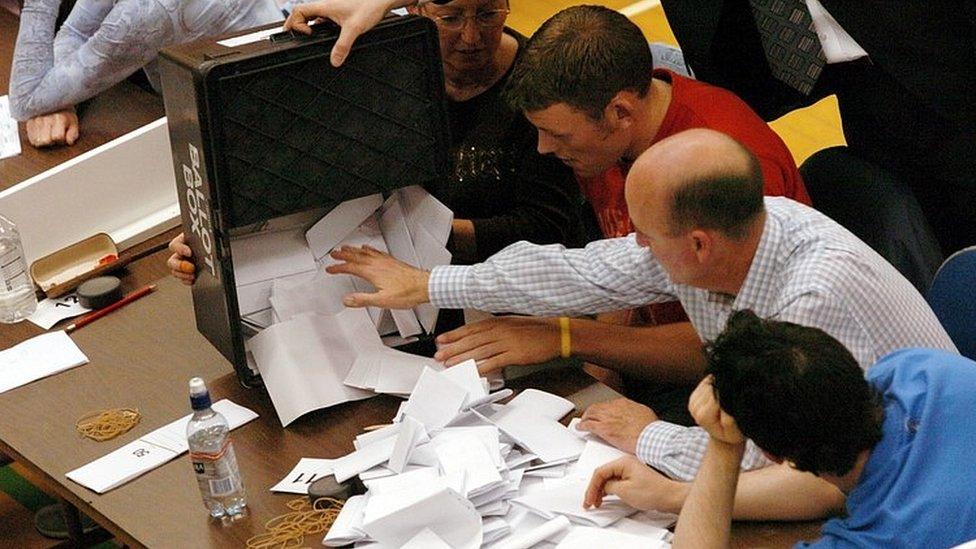Brexit Party joins cross-party alliance for voting reform
- Published

The Brexit Party has joined forces with the Lib Dems, the Greens and the SNP to call for a citizens' assembly to decide changes to the UK's voting system.
The parties have signed a declaration calling for the first-past-the-post method for Westminster elections to be replaced by a proportional system.
They say a "large group of ordinary people" should meet and hear from experts before recommending changes.
The public backed keeping the current system in a referendum in 2011.
Calls to ditch first-past-the-post method - in which the candidate who wins the most votes in each of the UK's 650 constituencies is elected - in favour of the Alternative Vote system were overwhelmingly rejected by 68% to 32%.
But supporters of voting reform have continued to campaign for change, arguing first-past-the-post fails to properly reflect the number of votes cast for smaller parties across the country - disenfranchises voters in safe seats where one party has historically dominated.
Brexit Party leader Nigel Farage became a convert to electoral reform after UKIP - which he lead for many years - only won a single seat in 2015, despite getting nearly four million votes
His new party and six others - also including Plaid Cymru, The Alliance Party of Northern Ireland and the Women's Equality Party - have now combined to form the Make Votes Matter Alliance in a fresh effort to push the issue up the political agenda.
A handful of Labour MPs - including former frontbenchers Ben Bradshaw, Jon Cruddas and Clive Lewis - have also signed up, as has Tory MP Derek Thomas.
'Evidence-based'
They have signed an agreement setting out the principles they believe should underpin an alternative system, stating that it must "ensure that seats closely match votes, with parliamentary representation at least as proportional as the Scottish Parliament".
The Scottish Parliament has used the Additional Member System - a form of proportional representation - since its inception in 1999.
Under the system, 73 MSPs are elected for individual constituencies under first-past-the-post, and a further 56 are chosen through a regional list system in which parties are allocated MSPs in proportion to their vote share. Voters get two votes each.
In an effort to build public support for a "sensible" alternative to first-past-the-post, the alliance says an "evidence-based, deliberative process" was needed - with members of the public taking the lead through citizen's assemblies based on juries.
Citizen's assemblies have been used in Ireland to address contentious issues, such as abortion, and Tory leadership candidate Rory Stewart is among those to suggest they could be a way of breaking the Brexit deadlock.
As an alternative, the alliance said a constitutional convention could be given the task - although it said it must be led by citizens and not political appointees.
Green Party co-leader Jonathan Bartley said the UK's "antique undemocratic voting system" had contributed to the "disastrous" state of the country.
"In 1867, the Representation of the People Act saw a massive expansion of the male franchise," he said. "People in the future might well look back to this event and see in it the seeds of the same scale of transformation, with a similar approach."